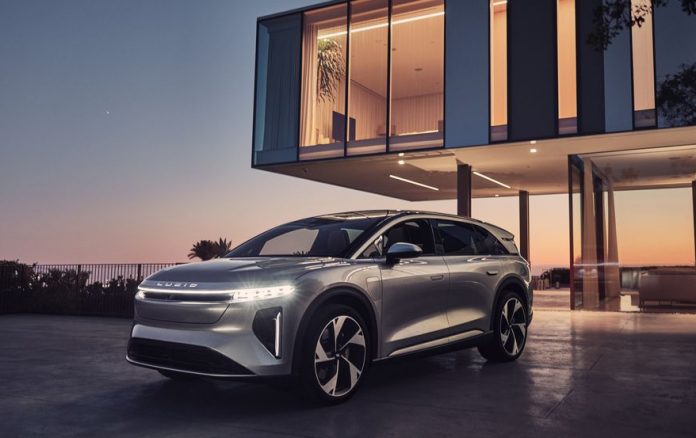The California-based startup Lucid has ventured into the lucrative and fiercely competitive SUV industry with its debut offering, the Gravity, built on the same platform as its Air sedan.
Lucid claims that the SUV can have a range of 440 miles and reach 60 mph in less than 3.5 seconds. It is anticipated to go into production in late 2024 at a starting price of $80,000.
However, the scene differs from when Lucid initially hinted at the prospect of an electric SUV three years ago. Currently, there is excessive competition and saturation in the luxury EV market, with products from Cadillac, BMW, Mercedes-Benz, and Audi. According to experts, the time for early EV adopters has passed, and what’s required is more affordable cars rather than just another sub-$100,000 premium model.
The Design:
The pandemic and other delays caused that SUV to take a while to arrive. But now that it’s being unveiled, the Gravity is the exact replacement for the opulent Air sedan. With 440 miles on a single charge, it is the EV with the longest range. This is more than the range of comparable three-row electric SUVs, such as the 400-mile dual motor version of the Rivian R1S, the 300-mile Volvo EX90, the Tesla Model X (348 miles), and the Kia EV9 (230 miles).
Inside, Gravity impresses with ample and flexible cargo areas. With the extra convenience of second and third-row seats that fold flat to provide more than 112 cubic feet of total usable cargo space, the cabin offers roomy seating and a convenient way to combine comfort and luggage capacity. A more luxurious backseat experience is created with the sliding second-row seats and integrated convenience tables. Exceptional legroom extends to the third row, allowing for a cozy seven-passenger setup that makes it the perfect automobile for any excursion.
According to a press release from Lucid CEO Peter Rawlinson, “Gravity will take our customers farther with fewer batteries and therefore use less precious energy.” Because of its lighter, smaller, and more advanced battery pack, the vehicle is lighter and more agile and requires less energy, electricity, and valuable metals and minerals overall.”




